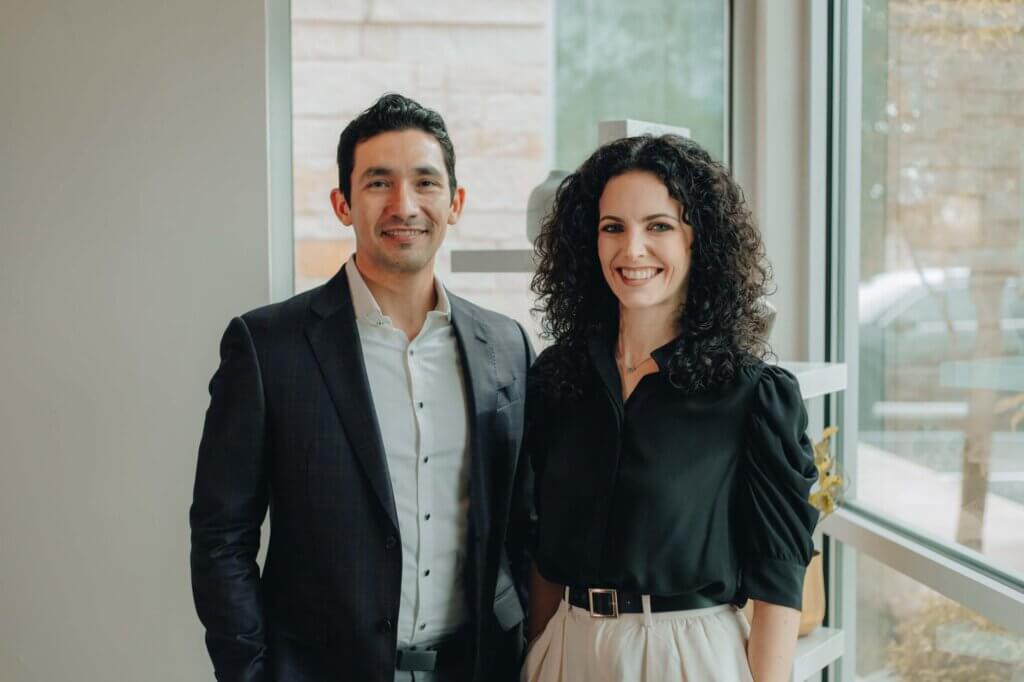Six out of every ten American adults have at least one chronic disease, and four out of every ten have two or more chronic diseases. Chronic diseases are more common than most people think, even if they have one.
With so many people struggling with chronic diseases, it’s unsustainable for all of them to routinely seek out specialists. There aren’t enough specialists to go around and specialist care is often expensive. There are other options for chronic disease management.
Many patients find that routine direct primary care services are more than enough when it comes to managing their chronic conditions (at least, most of the time).
We’re here to talk about how your primary care physician can help you with your chronic disease. Read on to learn more.
What Is a Chronic Disease?
So what qualifies as a chronic disease anyway?
Many people think that “chronic” and “life-long” are interchangeable, but this isn’t the case. Chronic disease doesn’t have to be permanent, but they often are.
A chronic disease is a condition that will last at least one year, but could last indefinitely. The condition should get in the way of routine day-to-day activities or require routine medical care (if not both).
Some chronic diseases are unavoidable while others are due to lifestyle choices and situations (such as smoking, living a sedentary lifestyle, or not eating enough nutritious food).
Some chronic diseases require extensive medical care, like cancer. Others require more personal at-home care, like diabetes.
There are so many different types of chronic diseases all with varying levels of severity.
Why Would Direct Primary Care Be Best?
If you have a chronic disease, you may be inclined to go to a specialist for the bulk of your care. While it’s true that patients should see specialists at first and for emergency situations, primary care providers are capable of typical day-to-day management.
In many cases, it’s far more convenient for patients to see their primary care physicians instead of trying to see specialists routinely.
Here are a few reasons that setting up routine direct primary care appointments can be beneficial if you have a chronic disease.
Fewer Appointments to Manage
When you have a chronic disease (or worse, multiple chronic diseases), you know that appointments can stack up and become overwhelming. The average person who’s working a 9 to 5 job won’t be able to maintain all of those appointments, and keeping track of them is tricky.
In this case, it’s best to use your primary care doctor. You’ll only have one appointment to deal with, and while your primary care physician isn’t a specialist, they will be able to provide most of what you need in between specialist appointments.
Make your schedule easier to manage by visiting your primary care doctor.
Paperwork Is All in One Place
When was the last time you had to fill out paperwork for a new doctor? Do all of your doctors have access to all of your paperwork, or are you always requesting that doctors share your records amongst themselves?
When you see a primary care provider for the bulk of your care, all of that paperwork will be in one place. You may have to transfer some specialist paperwork, but it will be less frequent and easier to manage.
This also ensures that your records are up to date and that you aren’t dealing with any conflicts in care. Your doctor will have all of the information they need in order to properly treat you and your condition.
Easier Medication Management
On a similar note, medication management is far easier when you’re working with one primary care physician for the majority of your care.
When you see multiple doctors, they may not all have accurate records of your medications. In many cases, patients are responsible for relaying that information, but if you’re on a lot of different medications, that can be challenging. It’s easy to forget and make mistakes.
This makes prescribing tricky. Doctors may accidentally prescribe medications that don’t work well together, or even that negate each other. Pharmacists often catch those problems, but that’s not always the case if you’re also using multiple pharmacies.
When you primarily use one primary care provider, they’ll have an easier time helping you manage your medication because the information is all in one place.
Building Long-Term Relationships With Physicians
Many people underestimate the importance of building relationships with their doctors. If you have a chronic disease of some kind, you’re going to be spending a lot of time with your doctors. You want to feel safe and comfortable with them.
When you’re juggling several doctors, this can be tricky. You never spend enough time with any of them to really establish a bond.
When you’re working with one primary care physician most of the time, you’ll be able to forge a stronger relationship. You’ll feel more comfortable asking questions or going through exams when you feel that you can trust the doctor.
You’re also more likely to be listened to right away. Many people struggle with getting new doctors to listen to them when they have chronic illnesses, but with your primary care doctor, you shouldn’t have this issue.
Comfortable Care
You want to have a comfortable experience at the doctor’s office. When you’re always visiting new doctors, there’s very little time to settle in and feel comfortable. You may not share as much information as you’d like to.
When you visit your primary care provider, you know what to expect. You’re familiar with the waiting room, the office, and the staff. You don’t have to add excess stress to your appointment days.
Easier Appointment Access
Getting an appointment with a specialist can be challenging on a good day. It’s not uncommon for people to wait for months to see specialists for certain conditions, and this problem gets worse if patients don’t live close to medical facilities or if they have tight schedules. On top of this, specialist appointments can be prohibitively expensive, even with insurance.
All of this results in a lack of access to care. A lack of care will result in poor health management, and if you have a chronic disease, that can be dangerous.
While waiting a bit for primary care services isn’t abnormal, the wait times will be far shorter than those of specialists. You’ll also be spending less money due to our direct primary care model.
Recognizing Changes Quickly
When you see a primary care physician routinely, they get to know your “norms.” They know what symptoms and test results are normal for you, even if they wouldn’t be normal for others.
This makes it easy for them to notice when something isn’t right. A specialist who you don’t see routinely may not notice changes at all.
Often, when it comes to managing chronic diseases, noticing changes right away is crucial. New symptoms can be a sign that something is wrong, and the sooner you take care of it, the better.
Are All Chronic Conditions Manageable with Primary Care?
None of this is to say that patients should only seek primary care physicians when they have chronic diseases. Primary care physicians often work together with specialists to make sure their patients are receiving the best possible care.
Some conditions may never require specialists. If the conditions are mild and not interfering too much with the patient’s quality of life, specialist care may not be helpful.
On the other hand, some conditions will require specialists. Cancer, for example, requires care from an oncologist. Patients should still see their primary care providers between appointments.
Primary care providers are “generalists.” They know a lot about a wide variety of conditions, but they’re unable to provide specialized care. Use both types of doctors together so you can get the best of both worlds.
Primary Care Services That Can Help
So what types of primary care services are beneficial for people with chronic diseases? There are several things that you can do through your direct primary care provider that will improve your long-term chronic disease management. Here’s a quick rundown.
Check-Ups
Check-ups are important for everyone, regardless of whether or not they’re managing chronic diseases. During routine check-ups, doctors will talk to patients about their lifestyles, ask about any health changes, and take vitals.
In most cases, check-ups aren’t very thorough. Patients are responsible for voicing any concerns. If you’re managing a chronic disease, your doctor will likely ask you relevant questions to keep the appointment as useful as possible.
Check-ups are excellent for catching problems early. Doctors often use check-ups as opportunities to schedule tests and further appointments if something seems amiss.
Most people have yearly check-ups, but you may need to visit your primary care physician more often if you have a chronic disease.
Screenings and Tests
Primary care providers can order many common tests without the need for approval from a specialist. Blood tests, imaging, stress tests, and more may all be available through your primary care provider.
This is important because waiting for a specialist for testing isn’t always feasible. You want to test as soon as possible so you can start treating the problem.
Doctors will be able to tell you which tests make the most sense for your condition and help you schedule the tests as soon as possible. They can also help you understand the test results or send those results to specialists if necessary.
Care Coordination
Speaking of sending the tests off to specialists, primary care doctors are excellent at helping with care coordination.
Do you know that you need a specialist for your chronic disease, but you’re not sure where to start? That’s normal. Often, the medical world is confusing and overwhelming, and there are so many different types of doctors. It’s hard to get a good starting point.
When you visit your primary care provider, they can help connect you with other doctors in your area. They can write referrals and give recommendations for doctors who will be good fits for you.
They can also help you connect with other types of medical professionals who may help with your condition, such as therapists, physical therapists, and more.
Getting a referral from a doctor will make it easier for you to get appointments and you’ll know that you’re seeing someone trustworthy.
Patient Education
The most important task of a primary care physician is patient education. These doctors have to help their patients understand general health and wellness so they can live healthy lifestyles between appointments.
Even if your doctor doesn’t specialize in your condition, they can give you general advice on how to stay healthy. They’ll help you come up with a nutrition plan (or connect you with a nutritionist who can). They may offer advice for increasing your activity levels.
You should always feel comfortable asking your doctor questions about how you can get as healthy as possible. They’re there to help you thrive.
Direct Primary Care Is Crucial for Chronic Disease Management
Effective chronic disease management takes a whole team, and one of the most important players on that team is your primary care physician. Direct primary care can help you maintain your health between specialist appointments, so don’t underestimate it.
Managing a chronic disease is tough, but with a team of qualified physicians on your side, you can live a happy and healthy lifestyle and manage your symptoms with relative ease.
At Salveo Direct Care, we help San Antonio patients stay healthy. We have transparent prices and high-quality doctors. Get started with us today.


